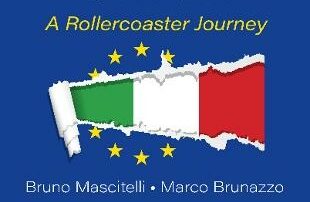
BRUNO MASCITELLI:
Department of International Studies, Swinburne University of
Technology, Melbourne, Australia
The shifting attention which Italy demonstrated towards European integration since 1945 has been a reflection of its changing agendas, the external constraints (vincolo esterno) and to a lesser extent on changing political elites. It went from distraction largely due to internal issues of paramount importance to moments of decisive and effective suggestion on the best path for the European journey. Italy’s entry into the Eurozone, later exacerbated by the global financial crisis (sovereign debt crisis) and the political voice of Silvio Berlusconi steered Italy towards greater alliance with the US and ultimately with greater tensions with the European Union. In more recent times the draining impact of migration and a failure of EU solidarity has placed Italy in the Eurosceptic camp even without Salvini.
Italy always wanted to be invited to the “war room” of decision making even if it was only to be listened to and support a majority decision. On the European front – Italy has often shown annoyance at being left out of the power broking nations of the European Union which occurred regularly – something which might change with the UK leaving the European Union.
Italy’s standing with the EU between irrelevance and total inability to meet its responsibilities but with gasps of fresh oversight, creativity and genuine leadership. Squeezed between more powerful nations and at the same time having expectations of benefiting from being in the European Club, this position has made of Italy a country uncertain of itself and not sufficiently firm with its policy beliefs.
The current spate of Euroscepticism in Italy is largely connected to the defeat of the centre-left political and in the polls and the resurgence of right-wing movements which have captured the moment and given voice to much Italian political anger and frustration. However, it too has large opportunistic appetite and its desire for power and government is stronger than its principles. This right-wing expression is also reference to the growing inequality and ongoing economic deprivation especially in the south. The growth of inequality and poverty in Italy since the turn of the millennium is a source of depressing reading. When seeking some deeper understanding and explanation of the voting patterns – some of which was evident with the 5 Star Movement platitude of providing minor increases in welfare – it was the recipient of a multitude of votes across the poorer parts of Italy. That scenario in 2018 has since vanished after the 5 Star Movement governments fell into line like all other governments of the last period and were unable to deliver on promises.
The decades on rollercoaster journey which Italy has traversed in its relationship with the European Union has been a reflection of its internal agenda and its desire for a voice and influence on the international agenda – the European Union being its first priority. Whether the exit of the UK from the European Union or stepping up to the Franco-German leadership will open new avenues is something to be seen. However, as the past has told us – the internal political agenda will be key in this decision and Italy’s internal political agenda seems at the point of writing this book far from being free of these hurdles.
Italy and the European Union: A rollercoaster journey, (2020) by Bruno Mascitelli and Marco Brunazzo, Nova Publications, New York.
Bio: Bruno Mascitelli is Adjunct Professor in the Department of International Studies at Swinburne University of Technology in Melbourne. He was the holder of a Jean Monnet Chair and conducts his research on European and Italian political economy. He is President of the European Studies Association – Australia New Zealand (ESAANZ).